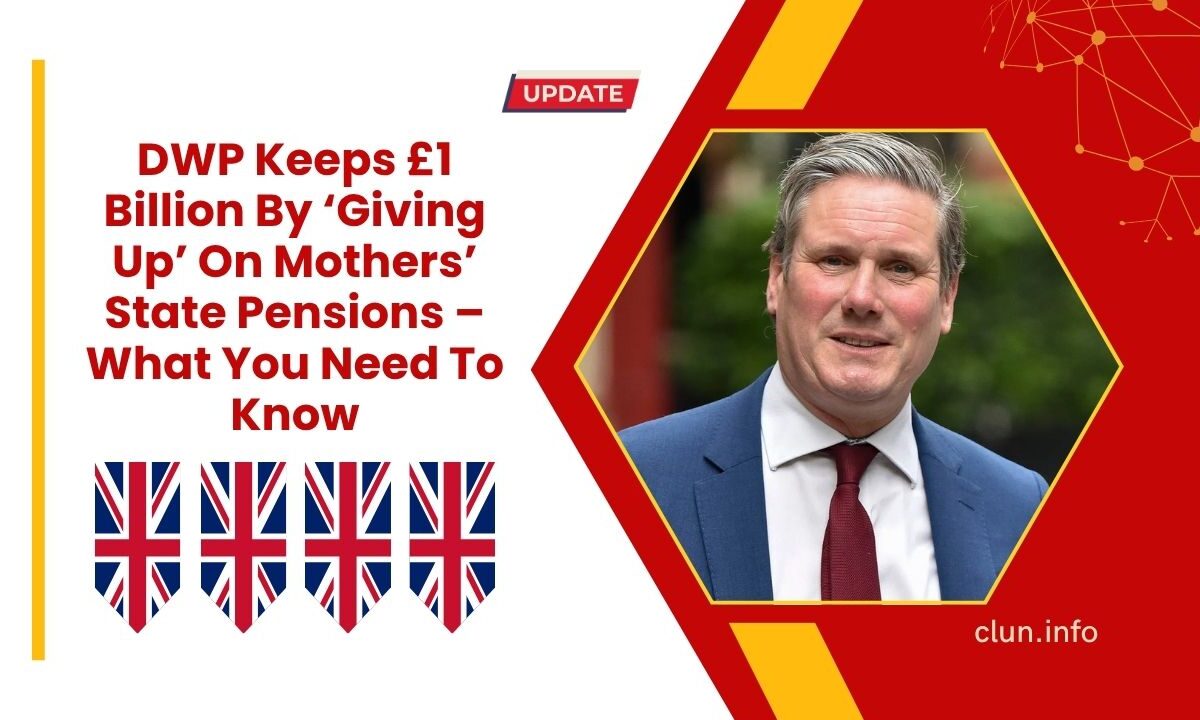The Department for Work and Pensions (DWP) is under intense criticism after slashing its state pension correction budget by more than £1 billion.
At the heart of the issue lies a decades-old administrative error that resulted in hundreds of thousands of mothers missing out on crucial National Insurance (NI) credits.
These credits—formally known as Home Responsibilities Protection (HRP)—were meant to help those who claimed Child Benefit between April 6, 1978, and April 5, 2010, but many were never credited properly, leaving women with lower state pensions than they deserved.
How Did This Happen?
Home Responsibilities Protection (HRP) was introduced to protect parents and carers who took time off work for family duties. It reduced the number of qualifying years needed for a full basic State Pension.
- Before April 6, 2010: HRP was applied instead of NI credits.
- After April 6, 2010: NI credits automatically replaced HRP.
Yet, due to DWP’s record-keeping issues, HRP credits were not correctly added for many women, especially those who changed names or didn’t file a tax return.
DWP’s Attempted Fix – A Failure?
The DWP initially pledged £1.2 billion to correct the mistake. However, its latest annual report shows a drastic downward revision, with only £29.8 million now expected to be paid out in future corrections.
Key Stats on the HRP Correction Effort
| Detail | Value |
|---|---|
| Initial Correction Budget | £1.2 billion |
| Revised Expected Spend | £29.8 million |
| Amount Paid So Far | £104 million |
| Number of Pensions Corrected | 12,379 |
| Average Arrears Paid Per Claimant | £8,377 |
| Initial Correction Target (Eligible) | 90% |
| Current Estimated Correction Rate | 8% |
| Mothers Potentially Still Affected | Over 100,000 |
Despite sending 370,000 letters to affected individuals in a bid to raise awareness, the campaign was a “dismal failure” according to pension consultants.
Industry Experts Slam DWP’s Response
Sir Steve Webb, former pensions minister, criticized the DWP, stating:
“This is a hammer blow to mothers who are still receiving reduced pensions due to errors in their NI records. Relying on a complicated online system was doomed from the start.”
Rachel Vahey, public policy lead at AJ Bell, echoed the concern:
“DWP has mismanaged these state pension payments and now appears to be giving up, relying on self-claims which could exclude vulnerable people.”
Why This Matters
Women born before April 6, 1953, who claimed Child Benefit in the relevant period, may have significant gaps in their NI record, directly affecting their pension.
HRP could reduce the qualifying years needed by up to 22 years, a massive benefit especially for those who paused work for caregiving.
- Women needed 39 qualifying years
- Men needed 44 qualifying years
- With HRP, this could be reduced to 17 years
A failure to correct this can mean losing thousands in retirement income.
What You Can Do
If you or someone you know:
- Claimed Child Benefit between 1978 and 2010
- Reached State Pension age before 2016
- Is receiving a lower-than-expected pension
You should contact the National Insurance Helpline on 0300 200 3500. A claim may help adjust your NI record and boost your state pension.
The revelation that the DWP will likely spend only a fraction of what it initially promised has raised serious concerns.
While £104 million has been disbursed so far, the revised correction effort leaves over 100,000 mothers potentially without the pensions they are legally entitled to.
The government’s decision to stop proactively searching for these women not only represents a financial blow but also undermines trust in the UK’s pension system.
As the campaign falters, it’s more critical than ever for individuals to act and check their NI records.
FAQs
Who qualifies for HRP corrections?
Anyone who claimed Child Benefit between April 6, 1978, and April 5, 2010, and reached State Pension age before 2016, especially women who took time off for childcare.
How do I check if I was affected?
Call the National Insurance Helpline at 0300 200 3500. They can guide you through checking and potentially updating your NI contributions.
How much could I get back if I’m eligible?
The average arrears payout has been about £8,377, but this depends on how many qualifying years were missing from your record.




